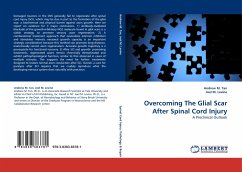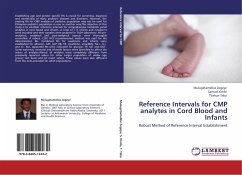Damaged neurons in the CNS generally fail to regenerate after spinal cord injury (SCI), which may be due in part to the formation of the glial scar, a biochemical and physical barrier against axon growth. Here we report on evidence for 3 major conclusions. 1) Antibody-mediated blockade of the growth-inhibitory NG2 molecule found in glial scars is a viable strategy to promote sensory axon regeneration. 2) A combinatorial treatment approach that neutralizes extrinsic inhibition and stimulates intrinsic neuronal growth capacity is an important strategic consideration because this method can promote long-distance, anatomically correct axon regeneration. Accurate growth trajectory is a prerequisite for functional recovery. 3) After SCI and growth- promoting treatments, regenerated axons remain chronically demyelinated and exhibit pathophysiological function, similar to that observed in cases of multiple sclerosis. This suggests the need for further treatments designed to restore normal axon conduction after SCI. Overall, a cure for paralysis after SCI requires that we crudely reproduce what the developing nervous system does naturally with precision.








